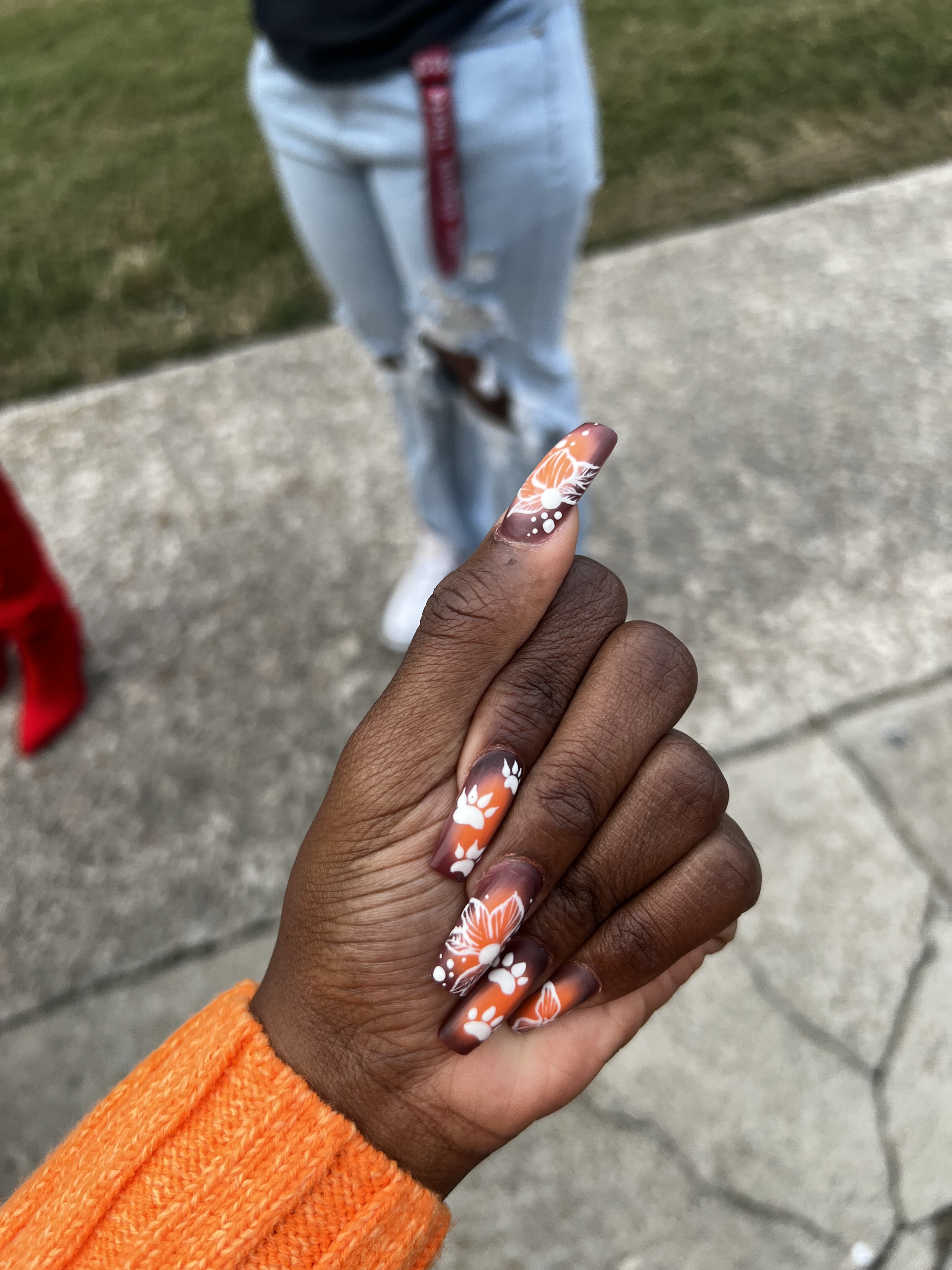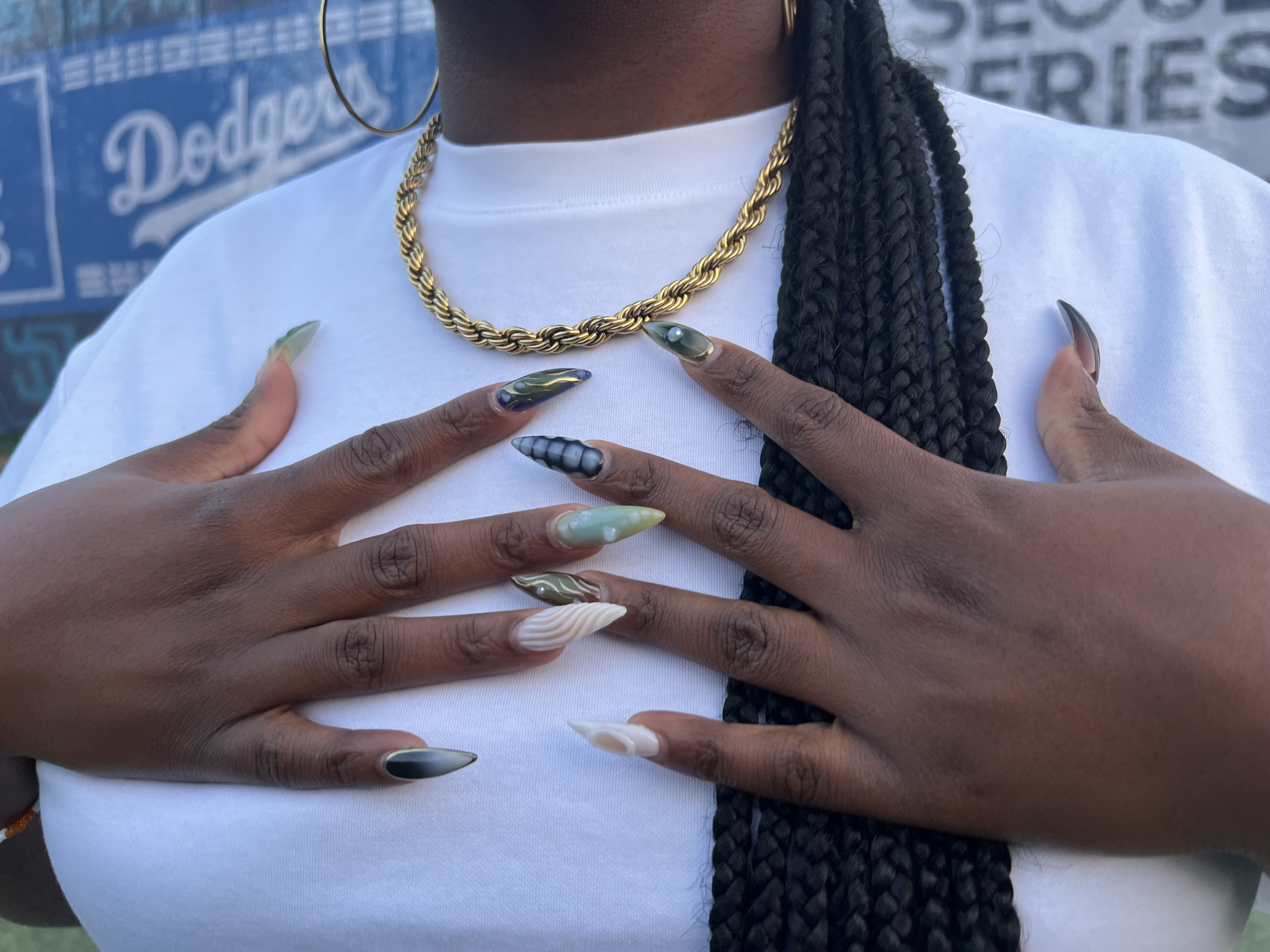
I am not a machine that I must be maintained!
When I got laid off in February 2023, I changed my habits, especially with spending, drastically and quickly.
I renewed my long-neglected library card and, instead of buying every book that caught my eye on Pinterest, leveraged my access to a spectacular library system (DCPL, I will love you forever). I’d read the books and buy only those I knew I’d want to own in my personal library.
I stopped drinking in March of that year (why are cocktails $15??) and have only had alcohol once since my birthday that same month (it was several glasses of Prosecco on a boat tour in Budapest, an iconic way to wrap up my drinking era).

Even after regaining employment, that experience pushed me to reconsider my spending and what I was really willing to invest in longterm. But one thing I never really took a second glance at was my relationship to spending on beauty, better known as "girl maintenance."
That changed progressively and unintentionally. But once I was gone, I didn’t go back.
I didn't just wake up one day and realize how tight of a grip the beauty industry had on my time and money. It happened in hindsight, after a gradual unraveling of each finger this specific type of consumerism had wrapped around my life and wallet.
I unsubscribed from girl maintenance out of circumstance (s/o random hobbies!), but I stay unsubscribed out of commitment to my financial goals and self-image.
This is the story of how I ditched girl maintenance, why I’m better for it, how you can do it too, and why you might not want to.
My case is minor, as I only began (and ended) my commitment to many of the most expensive parts of "girl maintenance" in my late teens and early twenties. But I nevertheless resonated deeply with a recent viral twitter post on the matter:
girl maintenance is so expensive it’s not even enjoyable anymore 😭😭😭😭😭 i be at my appointments with a straight face
At the peak of what I considered "maintenance," I was at my nail tech monthly, eyebrow person bimonthly, facial person bimonthly, and a hair salon whenever the need became apparent. I didn't bother to find receipts, but if memory serves me correctly, at the height of my investment, I was paying anywhere from $300-$600 in any given month in the name of beauty, aesthetics, and "looking good so I can feel good."
The problem, as the twitter user points out, is that I actually did not feel good. Anyone who's ever spent $300+ and 8-10 hours of their life for some small butt-length knotless braids (and who is honest with themselves) will admit that the process does not feel good. What's enjoyable, to me at least, is how I look in small knotless braids and how that makes me feel about myself.
We all want to look good and we really do feel better when we do. But what's considered "looking good" is what has been manipulated generation after generation to often become more invasive, more expensive, and even more dangerous to women specifically. Looking good costs women more time, energy, and money and that is on purpose.
I learned more about just how girl maintenance affects women’s access to financial freedom in the first chapter of Rich Girl Nation (2025) by Katie Gatti Tassi. The chapter’s title is “The Hot Girl Hamster Wheel,” named after a term coined by Katie that refers to “the litany of rotating, recurring expenses necessary to make one ‘conventionally attractive.’” What she centers her concern on is not just the cost of girl maintenance, but the “maintenance” part of it: treating beauty treatments as a baseline that must be upheld in order to be acceptably feminine, even to the detriment of long-term financial goals. Whether it’s marketed as self-care or how to attract a certain type of person or relationship (which reminds me of “marry me chicken”; friends, it’s literally just chicken with sun-dried tomatoes and heavy cream?????), Katie’s argument is that the beauty industry has exploited the connection between beauty, status, desirability, and confidence, leaving women on a literal hamster wheel of spending money they sometimes don’t have or could have invested elsewhere. She also argues that if we can get off, we should, and we’ll be (financially) better for it.
I can attest. I’ve saved up to $2,500 per year on nails alone.
I stopped getting my nails done when I started training for my triathlon in summer 2024. If you knew me when I was getting my nails done, you may recall that I took it very seriously. I only went to one (very talented, but very expensive even by Atlanta standards) nail tech, and prided myself on only breaking four nails in three years.

But when I decided to embark upon this new athletic journey, I knew 2 things to be true:
So I took the nails off in late spring 2024, assuring my nail tech I'd be back that September for another full set once I finished the race. September came. But on Labor Day 2024, I picked up my violin again for the first time in years and, after successfully executing a D Major scale, decided to recommit myself to developing my musicianship.
Thus, placing the final (long stiletto) nail in the coffin.
My March 2024 birthday set became the last set I ever got.

And with tossing away my acrylic nails, so went everything else I got done at a nail salon (eyebrow wax and gel pedicures). I no longer had any reason or desire to return to a nail salon for anything at all. And, counter to what I feared, I didn't turn into some ghastly undesirable version of myself. I didn't "let myself go" or start to "look like a little boy." My womanhood, to my surprise, did not disappear into thin air once I stopped going to the nail salon. Instead, to my delight, I still looked and felt like me.
What about vacations? What about special occasions? Don’t you make an exception for those?
Sometimes.
I got my first pedicure in almost two years in preparation for my friends’ wedding in Cancun. I got my hair braided for my birthday for the first time in at least a year.
My exceptions are rare and reserved for when I want them, not need them. I don’t need 10 white toes to have a good time. I don’t need cleanly arched eyebrows to be “presentable.”

To counter the idea that I’m some kind of machine that requires maintenance, I truly only engage in beauty services when I really want to. When it’s an experience I think I would enjoy and benefit from, like the foot scrub during a basic pedicure. I feel more comfortable spending for it when I know I’ll enjoy the experience, not just the result.
Now, of course, there is the counterargument that many people do "girl maintenance" for their personal benefit and pleasure. That is how they want to look and the maintenance brings them joy. And I will never argue with another person on how they should want their bodies to look, but what I will challenge anyone to reflect on is whether that is truly an intrinsic or extrinsic desire. Do you like how you look or do you like that others like how you look. Again, that's between you, your journal, and your wallet. But it's a question we've got to be asking ourselves to really draw a line between shelling out what could amount to a real fortune over our lifetimes to an industry whose sole purpose is to convince us that we are not enough and that if we want to be enough, we must spend more and more until we die (then our families will pay for us to look alive even when we are dead; this industry haunts us even to our graves. see: "who did the body?").
I’m not saying don’t ever spend on beauty again. What I’m saying is I won’t ever spend on beauty in an attempt to validate my womanhood. I am not a machine. I don’t need girl maintenance to be the beautiful, silly, adventurous person that I am.
Unsubscribing from girl maintenance was a win for me on many fronts, but I admit that for me, it was a very easy and simple task. I suffered no consequences from it and I was so loosely plugged in, it was pretty painless to opt out. I truly was better for it immediately. That is not the case for some people.
One very valid case for girl maintenance is that investing so much into how you look often yields real life social, professional, and financial benefits (Hosoda, Stone-Romero, & Coats, 2003). People treat you better when they think you are conventionally attractive (see: pretty privilege).
But my reality was that girl maintenance was costing me lots of money, as it was anyone else, but I was not reaping the benefits. I, to my knowledge, have never reaped any benefits from my (comparatively small) investments in beauty. If someone found me pretty, I surely didn't notice any privilege come from it. For me, unsubscribing from girl maintenance had no negatives. I had nothing (romantic attention, career prospects, social media followers) to lose, and everything (my money, time, and confidence) to gain. But I know that is not everyone's experience.
Many people are in a wide range of professions – from influencers to real estate agents – that tie their livelihoods to how attractive people think they are, even if it is subtle or "unwritten." I imagine that for many people, their pretty privilege, the tangible and proven benefits of being found attractive, make giving up things like girl maintenance too prohibitive. For many people, their ability to be conventionally attractive is a key part of how they keep food on the table, progress in their career, or even make and keep friends. Perhaps it is I in the more privileged position that I can afford to unsubscribe so freely. Perhaps it is a privilege to unsubscribe without having to lose anything at all.
All I know is that if I invest money, time, and energy trying to fit what society deems conventionally attractive, I will be worse off emotionally and financially. And of course there’s the possibility that if I recanted on all this, did what was expected of me, spent the thousands of dollars, and got back on my hot girl hamster wheel with everything I’ve got, then maybe I could attain the partner, status, wealth, and success that is promised.
But I doubt it, dear reader. In fact, I wouldn’t bet another dime on it.
Thalia, 26, is just out here making breakthroughs financially and emotionally!